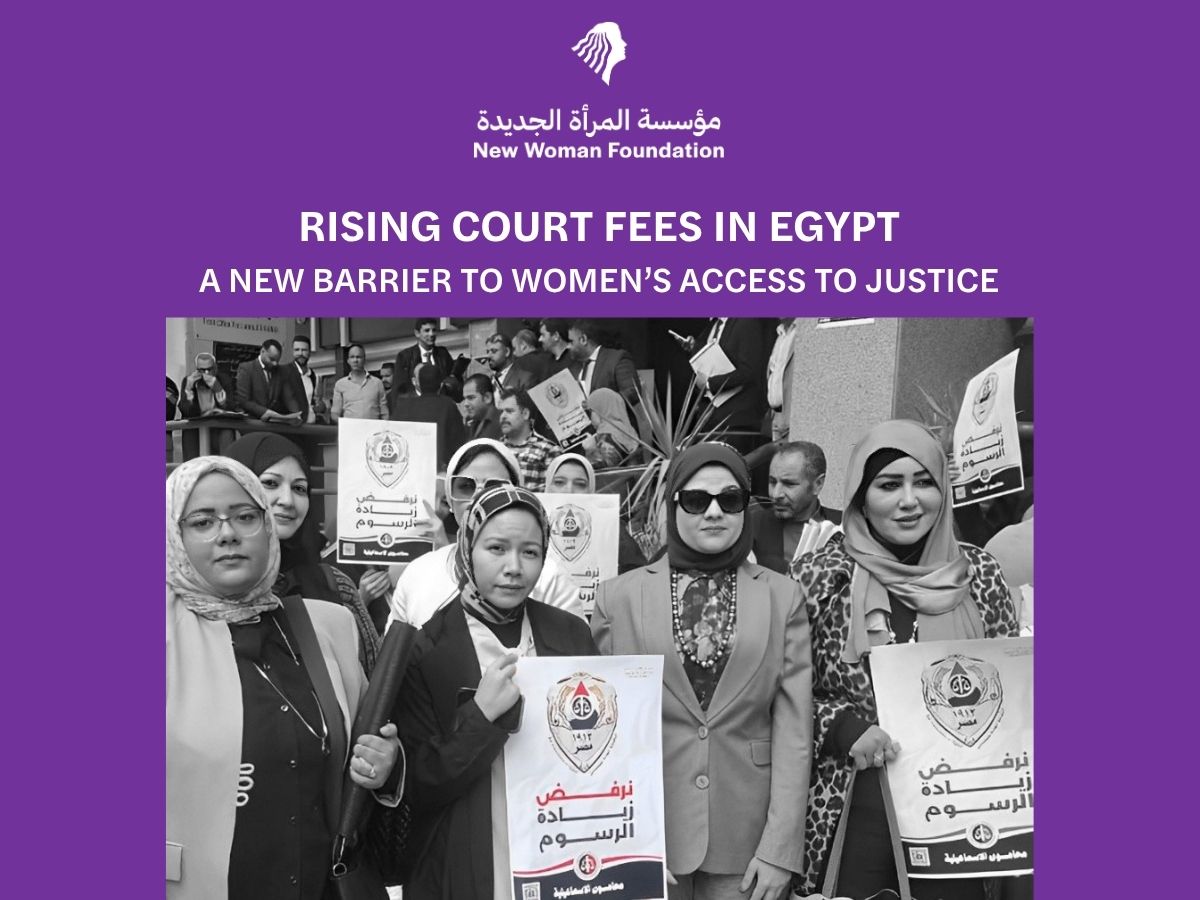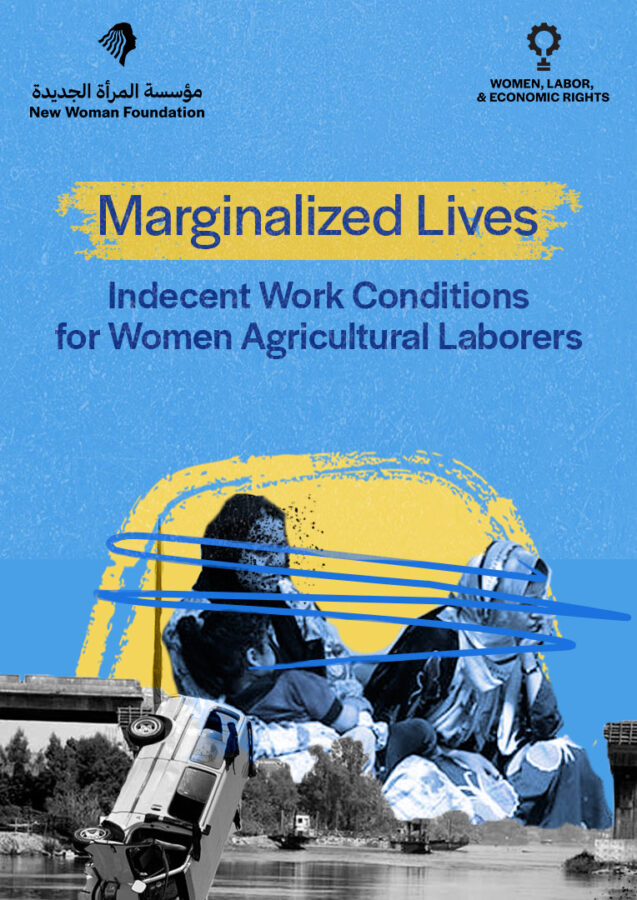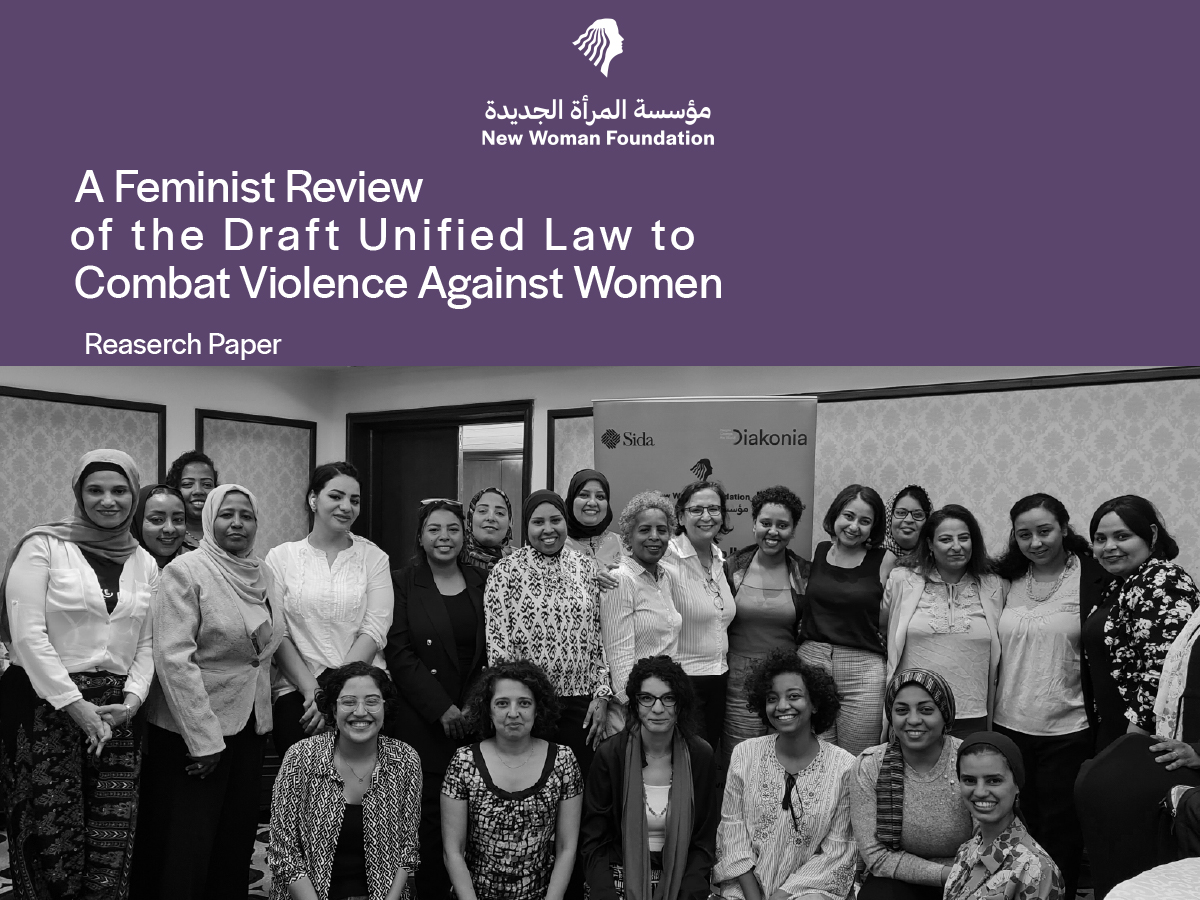- Contact Us
- 0020233382706
- nwrc@nwrcegypt.org
New Woman Foundation Issued A report on Political Participation of Women in Power and Decision-making Positions Axis Beijing +20
A report on
Political Participation of Women in Power and Decision-making Positions Axis
Beijing +20
Egypt
Dedicated to Shimmaa Elsabbagh
the martyr of flower
- Strategic Goals
- Increase the representation of women in parliamentary institutions, political, legislative councils and decision-making positions by supporting their political participation.
- Increase women’s membership in political parties, unions, professional associations, local councils and civil society organizations.
- Women’s political participation and the right to peaceful demonstration
- Women participated in peaceful protests over the past four years, and contributed to build the broad mass movement that Egypt witnessed throughout its people’s uprising in January 25 and June 30. Women’s participation was not limited to only protests with a political nature and demanding regime change, but women participated in different kinds of protests such as labor and trade unions protests that preceded January 25 and continued unabated throughout the past years and are still ongoing. Women’s participation is remarkable and noticeable, in order to change the political, economic, social and others conditions in the country, which emphasizes that women clinch their right from the state to peaceful demonstration and to practice protest, in order to confirm their rights and demands.
- However, these peaceful protests were faced by various forms of violence, most obviously the exposure to sexual violence to the extent of detention and arbitrary murder by police forces. And with different political managements of transitional periods, starting from the period of Mubarak’s rule followed by the military council then the Muslim Brotherhood until the current government, and according to the documentation of feminist groups and organizations, there were more than 250 cases of sexual assault during the broad popular protests, which signifies a systematic violation against women during their political participation of their right to peaceful demonstration. We didn’t monitor any legal accountability for any of the collective sexual assault cases except one case, which is the case that was investigated during the current president’s inauguration. While a number of women’s organizations adopted an announcement to the Attorney General to investigate into seven cases of assault, kidnapping and collective rape which are without investigation and litigation so far.
- And earlier during the first transitional period,peaceful female demonstrators were submitted to forced virginity tests by the military police forces, which violate privacy rights and promote the conservative culture values against Women’s participation in demonstrations and political action.
- Every transitional period included a number of legislations that work on restricting the public domain against female and male citizens, through which the current protest law came, where the limit of punishment reaches imprisonment and fine, in addition to remand the females accused, and procrastination of litigation procedures, which is considered a sign of imposing a sentence of imprisonment on the female protestors without issuing a legal rule.
- To date, we didn’t witness investigation in any of violence and riots incidents which left injured and martyrs women.Even though the transitional governments formed a number of fact-finding committees for each transitional period, however, there are no results published by any of these committees so far. Egypt has not witnessed transitional justice measures until now. Gender perspective was not mainstreamed into any of the fact-finding committees that have been formed so far, which we consider a complicity from the state to obstruct the political participation of women, contrary to what the state declares of its keenness to take measures to guarantee the participation of women in the political process on its various levels, starting from enabling women to have the right to peaceful demonstration.
- Women and the Constitution
- The participation rate of women in the Constituent Assembly of the Constitution that Egypt witnessed both in 2012 and 2014, was overall a weak participation. In the best circumstances, it did not exceed 5%, which reflects the need to continue efforts for advocacy and lobbying from various parties, in order to put pressure on the state for the need of mainstreaming women in political decision-making positions. The representation of women equally or by appropriate rate is away from the state’s keenness.
- Despite the state constitution’s provision of respecting international conventions, which opens the way for the state to provide special measures for women’s representation in parliament under Article (4) of the CEDAW, the formula of the representation of women in parliament in the Constitution was “appropriate representation”, which is loose and non-binding for both the state and political power to the need for women’s representation in parliament, which left women’s representation in parliament ahostage to the allowable pressure, without a clear provision of fair representation of women in parliament.
- In spite of the popular consent to the Constitution of 2014 by more than 96% in a referendum in 2014, however, many of the rights provided by this Constitution are breached or halted. This is reflected on all citizens, including women, both in regard to the right to peaceful demonstration and protest, and the right to organize and the formation of civil associations.
- The current constitution is criticized for not adopting the right to independent trade union organization, in particular with regard to the rights of female workers to organize themselves within independent trade union entities. Trade union work is considered a form of political participation and escalation in decision-making positions allowed for women at the work level.
- With regard to the formation of commission to combat discrimination against women as stipulated by the Constitution and others rights, they are a hostage to the legislations that will be addressed by the next parliament. According to the Law on the Exercise of Political Rights, which regulates the next parliamentary elections, we cannot expect the entry of efficient male and female parliamentarians with sensitivity to women’s issues, which makes those provisions a threat if the parliamentary election law did not provide the opportunity for women who are keen to enable women from entering the parliament.
- Women and Political Participation Legislations
- The current parliamentary election law is unfair with respect to ensuring the representation of women. Until now the largest proportion of parliamentary seats is subject to individual system by 80% in the elections, which makes it difficult for women to win seats under the electoral process. It also ignores the need to empower women in front of a community with a male and conservative culture in nature. Party-list system represents only 20% of the seats. The party-list system is considered the optimized system for women’s access to parliament. In addition to the lack of strong lists by political forces that can win against any of the religious movements on one hand and the reactionary conservative forces on the other hand.
- The current Lawon the Exercise of Political Rights did not clarify a possible image on constituencies, which would facilitate the progress of women winning the individual seats. What has been published in newspapers so far on the formation of constituencies emphasizes their breadth, which obstructs women from competition on individual seats and restricts them to the party-list system which represents only 20% of the seats shared with men, People with Special Needs and Christians
- Lawon the Exercise of Political Rights did not set acceptable limit for electoral campaigns until now, which predicts the use of political money in next elections, and this will be a great obstacle faced by women. The law also did not state a clear definition and punishment for the use of sectarian and hate speeches in elections, which subjects the integrity of the entire electoral process to be penetrated.
- A number of parties with a religious background still exist in the political arena. Those parties seem to be partners of the state for the post-June 30, which threatens the concept of citizenship and opens the way for the growth of political thoughts to discrimination against women and sectarianism.
- The constitutional article on the Local Councils states the representation of women with 25%. However, the features of the law that regulates the Local Councils are still The constitutional articles on the local council administration states decentralization, which is a concept that requires a transitional plan associated with re-structuring Local Councils. The state did not announce any vision to the possibility of implementation of this. And this affects the efficiency of women’s representation in the local councils and the success of the experience of mainstreaming women in the local council administration.
- Women in decision-making positions
- Throughout the transitional period, women held only ministerial positions unevenly over all previous governments. Women held Manpower, International cooperation, Health, Media and Environment ministries, however, women’s representation at the ministerial level needs to be further strengthened and to be diverse.
- On the other hand, women did not hold the governor position. Minister of Local Development stated that it is difficult for women to hold the governor position because of their lack of qualifications, which reflects the state’s continuous convictions of discrimination and its limitation to women’s opportunities in decision-making positions.
- There is a continuous deliberate exclusion of women from positionsin the judiciary. The public prosecution did not open its door to appoint women as public prosecutors and thus promote them to the judiciary bench. This is in addition to the State Council’s intransigence to appoint women as Assistant State’s Attorney which obstructs their access to state The Supreme Constitutional Court also experiences a delay in the presence of women in its board after excluding its only female constitutional judge.
- With regard to the laws that regulate syndicates and trade unions, women did not access the head of the syndicate position until now. Laws did not include requirement of women’s presence in their boards. While the independent trade unions managed to represent women on their boards according to specific rate stipulated in their bylaw, however those independent trade unions face difficulty with being recognized constitutionally and legally.
- Recommendations
On the state level
- The need to focus on achieving an experience in Egypt in the field of transitional justice that takes into account the gender perspective, and adopts investigation, accountability and reparations for women and their families who were harmed over the past years.
- The need for the application of Article (4) of the Convention of Elimination of all Forms of Discrimination against Women, on the need for applying special measures to enable women to political participation and decision-making positions.
- Re-consideration of the entire legislations issued during the transitional stages, on top of which is the protest law, where many girls from various movements were victims of this law , and the need to consider the peaceful demonstration as an inherent right of women to protest and freedom of expression.
- Reconsider the election laws to activate the party-list system and the adoption of safeguards by the state to enable women’s political participation at all levels, whether in Parliaments or Local Councils.
- Civil society participation in various committees of legislation, particularly women’s organizations, and the keenness to make a real community dialogue, which is active and influential in shaping the transitional and permanent state’s legislations.
On the international community level
- The need to activate control mechanisms on the state’s undertakings, according to a timetable and clear plan of action, and especially with regard to political action and participation of women.
- Allow a wider field to enable civil society organizations to participate more in the formulation of recent recommendations assigned by issuing international mechanism, and require mainstreaming civil society organizations into the implementation of the official plans for the advancement of women.
- State-binding recommendation to lift its reservations on CEDAW and signing its protocol.




